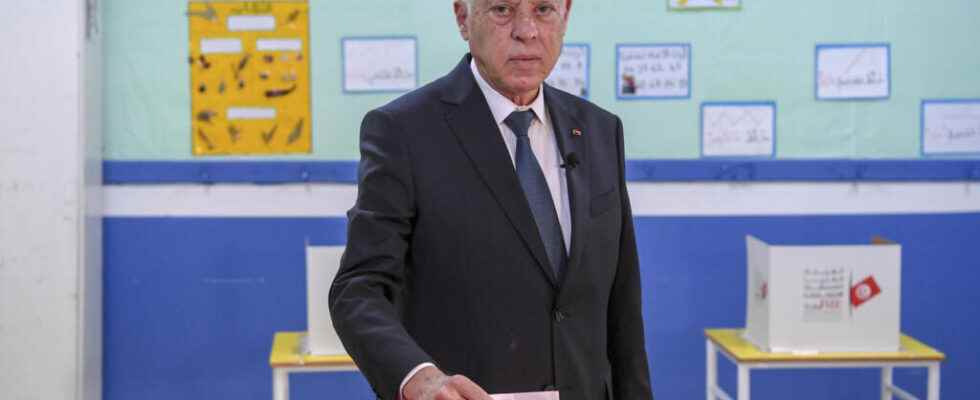After his rise to power in 1987, former Tunisian President Zine el-Abidine Ben Ali, overthrown in 2011, established a presidential regime with a government and a parliament that had relative power. The current president of Tunisia, Kaïs Saïed, has taken all the powers and appointed a government that has no real power. Is there a similarity between the two diets? Interview with Alia Gana, Emeritus Research Director at the CNRS.
RFI : Can we speak of a similarity between the Ben Ali regime, a presidential regime with a government and a Parliament without real power, and the current presidency of Kaïs Saïed? ?
Alia Gana: Both Ben Ali and Kaïs Saïed came to power through a coup d’etat or a constitutional coup. For Ben Ali, it is a context marked by the deterioration of political life, but also by a social and economic crisis.
In the case of Kaïs Saïed, it is rather a major dysfunction of the Parliamentary Assembly and, more broadly, a political crisis; a popular rejection of the political class in power since 2011.
Finally, it is a context marked by a very serious deterioration of the economic and social situation, and a sharp deterioration of public finances, with a level of indebtedness of the country never reached until then.
These two presidents, the former and the current, seem to want to work without political parties. Ben Ali attacked the Islamists before attacking the Tunisian left. Kaïs Saïed seeks to radically change the political system.
Upon his accession to power, Ben Ali initially sought to establish his legitimacy by engaging in dialogue with the political parties of the opposition, including with the Islamists. But, of course, very quickly, the rise in power of the Islamists put an end to the dialogue with the political and social forces, and caused the hardening of the regime. So, a fierce repression.
In the political regime advocated by Kaïs Saïed, the president is the embodiment of the people and presents himself as their saviour. It is somehow part of a messianic project, while claiming to want to overthrow the pyramid and rely on democracy. Basically, it is in the name of the people, in the name of the fight against the corrupt, that Kaïs Saïed intends to govern.
Ben Ali was blamed for his family’s hold on power in the country. Today, President Saïed’s entourage is criticized for doing the same thing.
It would perhaps be difficult to speak of a stranglehold on the power of a clan structured around Kaïs Saïed. In fact, what characterizes the circle surrounding the President of the Republic is its opacity, since the President does not officially have a party, unlike Ben Ali.
So, apart from the circle of activists, support committees – whose division we can observe today – and the circle of ideologues, some observers also report the influence of the family circle. We also speak of influence or pressure exerted by elements linked to the post-revolution political system.
► To read also Hamza Meddeb: “The grabbing of all powers and socio-economic degradation” amazes Tunisians
